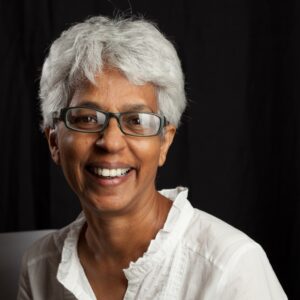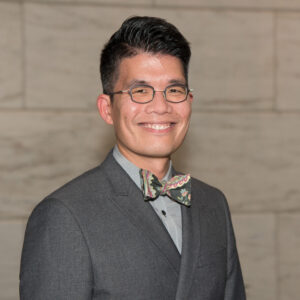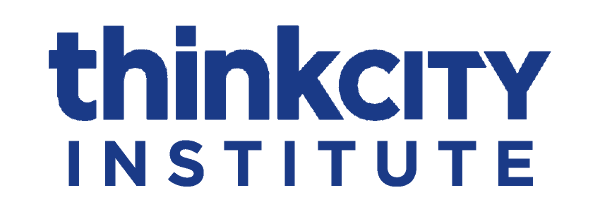INNOVATING MODELS FOR SUSTAINABLE HERITAGE MANAGEMENT masterclass
Creating Shared Value Through Social Enterprises
I. OVERVIEW
What is success in heritage management? State-of-the-art conservation of a historic property? Reviving a long-lost traditional practice? Increasing the number of visitors to the site? Restoring local ecology and landscape? Improving local well-being? Even before the global pandemic, there has been a push for the heritage sector to expand its boundaries and rethink its priorities.
Sustainable heritage management is no longer just about conserving heritage values, but also about creating new value through innovative business and governance models.
The Sustainable Heritage Management Masterclass series offers a deep dive into innovative case studies in the region, including World Heritage properties and UNESCO Asia-Pacific Awards for Cultural Heritage Conservation projects. Each Masterclass unveils various competences needed in managing the selected heritage site. Guided by expert facilitators, participants will interact with project teams and solve challenges by applying newly-acquired tools.
The Masterclass series covers knowledge and skills in the UNESCO Competence Framework for Cultural Heritage Management. It is developed by UNESCO Bangkok in cooperation with Fraunhofer IMW and Think City Institute, with support from the Ng Teng Fong Charitable Foundation.
Masterclass 3 on Creating Shared Value Through Social Enterprise
Baan Luang Rajamaitri, Chanthaburi, Thailand
The third course in the Masterclass series will explore the ways to create shared value among different heritage actors in managing a heritage property. It will introduce the innovative social enterprise model in restoring and operating the 150-year old Baan Luang Rajamatri historic inn in downtown Chanthaburi, Thailand, which won a UNESCO Heritage Award of Merit in 2015. Explore ways to achieve social and financial impact that complement and support heritage management goals.
II. COURSE OBJECTIVES
Participants will learn how to mobilize social enterprise tools and processes to create a sense of ownership and generate benefits for various stakeholders in the sustainable management of a heritage property.
Learning Outcomes
By the end of this course, participants should be able to:
- Develop proposals for delivering better value for stakeholders in managing a heritage property using social enterprise tools and processes
- Acquire new competences (skills and knowledge) relevant to cultural heritage management, with a focus on the managerial competences defined by UNESCO (such as organizational governance/heritage planning/strategic management, human capital management, financial management, communication/collaboration/coordination)
- Apply analytic thinking and problem-solving tools in a heritage management context
III. FACILITATORS
 Janet Pillai
Janet Pillai
Independent Consultant and Resource Person
Culture and Heritage Education
E-mail: janetpillai@gmail.com
Janet Pillai is an independent consultant and resource person advocating for cultural sustainability through education, capacity building and community based projects. She previously served as associate professor at the Department of Performing Arts in University Sains Malaysia (until 2013) and as adjunct Associate Professor at The University of Hong Kong, Division of Architectural Programs (until 2022). Her field of specialization includes cultural heritage education, cultural mapping and programming of community-engaged arts projects in partnership with local agencies, institutions, and professionals. Pillai has researched and published widely on community-based arts in the Asian region, cultural mapping and has authored 5 books related to arts, culture and heritage education. Pillai also contributes as an expert resource person to regional institutions such as UNESCO Bangkok and APCEIU Korea and Hong Kong University.
 Teng Chamchumrus
Teng Chamchumrus
Principal
ThirdSpace-IA, LLC
E-mail: tchamchumrus@gmail.com
Teng Chamchumrus is an applied strategist with more than 20 years of experience in the nonprofit and the private sectors. He has a BA in economics (magna cum laude) and an MBA from Harvard University. He served as Executive Officer, at the Smithsonian Institution, where he provided strategic thinking, leadership and management expertise in planning and implementation of education and audience engagement initiatives. Prior to the Smithsonian, Teng held various management and leadership roles at the American Red Cross, including leading the financial planning and analysis function for major disaster relief operations including Hurricane Katrina. Internationally, he served on the board of the International Council of Museums – United States (ICOM-US) and is an active member of the ICOM International Committee for the Collections and Activities of Museums of Cities (CAMOC). Locally, he served on the board of Montgomery History, Montgomery County, Maryland, USA. As a Fulbright Specialist, Teng provided strategic advisory services to the Kosovo Council for Cultural Heritage.
Teng is interested in museums’ roles in serving communities and the intersection of economic development, cultural sustainability, and sustainable communities. Teng is committed to bring his professional expertise and experience to help keep communities vibrant and diverse for generations to come.
IV. CLASS FORMAT
This course is a combination of self-paced learning, interactive live tutorial sessions, and a three-day programme on site in Chanthaburi, Thailand. It involves plenary discussions, group work and mentoring. At the end of the class, you will receive feedback on your work from the fellow classmate teams, facilitators, and the organizers.
The class format is divided into the following:
- Self-learning
- Live interactive sessions
- Onsite programme
- Group work
V. READING AND REFERENCE MATERIALS
Theme: Reorienting Heritage Practice, Competence-based capacity building for sustainable heritage management
Required
UNESCO Competence Framework for Cultural Heritage Management https://bangkok.unesco.org/content/competence-framework-cultural-heritage-management-user-guide-essential-skills-and-knowledge.
Hosagrahar, Jyoti. “Cultural Heritage and the 2030 Agenda for Sustainable Development.” In Asia conserved, vol. III: lessons learned from the UNESCO Asia-Pacific Heritage Awards for Culture Heritage Conservation, 2010-2014, edited by William Chapman, 4–11. Bangkok; Nanjing: UNESCO; Southeast University Press, 2019. https://unesdoc.unesco.org/ark:/48223/pf0000374412.
Wilkinson, Sara; The Context for Building Resilience through Sustainable Change of Use Adaptation; in Sara J. Wilkinson and Hilde Remøy (Editors); Building Urban Resilience through Change of Use; Wiley BlackWell, 2018: free pdf available at https://www.wiley.com/en-au/Building+Urban+Resilience+through+Change+of+Use-p-9781119231424 An easy read version of the above available here: https://theconversation.com/heritage-building-preservation-vs-sustainability-conflict-isnt-inevitable-83973.
“Hazrat Nizamuddin Basti: A Cultural Revival.” YouTube Video, 8:57. Posted by “Nizamuddin Urban Renewal Initiative,” June 8, 2018. https://www.youtube.com/watch?v=F8373bb_vfs.
“Introduction to Lai Chi Wo” Webpage. Posted by Policy for Sustainability Lab, Centre for Civil Society and Governance, The University of Hong Kong. https://ccsg.hku.hk/ruralsd/en/pages/about/introduction-to-lai-chi-wo/
Additional
Ashworth, G.J.; Heritage and Economic Development: Selling the Unsellable; heritage & society, Vol. 7 No. 1, May, 2014, 3–17. Download here: https://drive.google.com/file/d/1KLzfonKaxMMyXYivSRNPaxXr4Ias1mhu/view?usp=sharing
Klamer, Arjo and Zuidhof, Peter-Wim; The Values of Cultural Heritage: Merging Economic and Cultural Appraisals; in Economics and Heritage Conservation: A Meeting Organized by the Getty Conservation Institute, December 1998. https://drive.google.com/file/d/18uoVpzTrmIoUd5GaVVdQLVzNCXvif1jW/view?usp=sharing
Rypkema, Donovan; Heritage Conservation and Property Values; in Guido Licciardi and Rana Amirtahmassebi (editors) The Economics of Uniqueness: Investing in Historicy City Cores and Cultural Heritage Assets for Sustainable Development; World Bank, 2012. https://drive.google.com/file/d/1Auaa6u94uhmtkc7uVrlFaXZF4IJNoJui/view?usp=sharing
Chapagain, Neel Kamal; Contextual approach to the question of authenticity in heritage conservation and tourism; Journal of Heritage Management, 2(1). https://drive.google.com/file/d/1orSevNfpG-paHM7Hkwkr8gca9EqNrehz/view?usp=sharing
Special theme: Core competences for cultural heritage management
Note from UNESCO: Below materials have been selected from the Sustainable Heritage Management Foundation Course. Learn more about the course here: https://thinkcityinstitute.org/sustainable-heritage-management-course/
Module 1: Sustainable Development (SUS)
- C1 How can heritage management contribute to sustainable development?
- C2 How to create shared values and shared benefits?
Module 2: Heritage Policies, Principles, Processes and Ethics (HER)
Module 3: Applying Laws and Regulations (ALR)
Module 4: Community, Rights and Knowledge (CRK)
- A3 Why work with communities? Working with the ‘5th C’ in practice
- B1 Introduction: Engaging with diverse communities and stakeholders
Module 5: Heritage Education and Interpretation (HED)
- A1b Overview of Heritage Education and Interpretation
- A5b Principles for Heritage Interpretation
- C1 Designing ‘Experiences’ for the Visitors: Linking Heritage and Business
Theme: Values-based heritage management
Required
World Heritage Centre. 2021. Operational Guidelines for the Implementation of the World Heritage Convention. https://whc.unesco.org/en/guidelines/
Croker, Alan. 2017. Sydney Opera House Conservation Management Plan
https://www.sydneyoperahouse.com/our-story/conservation-management/conservation-management-plan.html
Avrami, Erica, Randall Mason, Susan Macdonald & David Myers, eds. (2019) Values in heritage management: emerging approaches and research directions, Los Angeles, California: The Getty Conservation Institute, 14-58. https://www.getty.edu/publications/virtuallibrary/pdf/9781606066195.pdf
Heritage Lottery Fund (nd) ‘Conservation management plans: a guide.’ http://ip51.icomos.org/~fleblanc/documents/management/doc_ConservationManagementPlans-Guide.pdf
UNESCO (2016) The HUL Guidebook. Bad Ischl, Austria: UNESCO. http://historicurbanlandscape.com/themes/196/userfiles/download/2016/6/7/wirey5prpznidqx.pdf
Additional
Cook, Ian and Taylor, Ken. 2013. A Contemporary Guide to Cultural Mapping. An ASEAN-Australia Perspective. Jakarta: ASEAN Secretariat. https://www.asean.org/wp-content/uploads/images/2013/resources/publication/Contemporary%20Guide%20to%20Cultural%20Mapping%20Rev%20X.pdf
Theme: The Case Method
Required
“Case Method in Practice.” (Video) Harvard Business School. TEACHING BY THE CASE METHOD Case Method in Practice. Accessed 22 April 2024. https://www.hbs.edu/teaching/case-method/Pages/default.aspx
“How the Case Method Words.” (Video) Harvard Business School. The HBS Case Method. Accessed 22 April 2024. https://www.hbs.edu/mba/academic-experience/Pages/the-hbs-case-method.aspx
Theme: Foundations of Social Enterprise
Required
The Investopedia Team. 11 June 2022. Social Enterprise: What It Is, How It Works, and Examples. Accessed 22 April 2024. https://www.investopedia.com/terms/s/social-enterprise.asp
Virtue Ventures. Social Enterprise in Context. Accessed 22 April 2024. https://www.4lenses.org/book/export/html/81/
Suriyankietkaew, Suparak & Krittayaruangroj et al (2022). Sustainable Leadership Practices and Competencies of SMEs for Sustainability and Resilience: A Community-Based Social Enterprise Study. Sustainability. 14. 5762. 10.3390/su14105762. https://www.researchgate.net/publication/360519350_Sustainable_Leadership_Practices_and_Competencies_of_SMEs_for_Sustainability_and_Resilience_A_Community-Based_Social_Enterprise_Study
Rosa González (2020) The spectrum of Community Engagement to Ownership https://d3n8a8pro7vhmx.cloudfront.net/facilitatingpower/pages/53/attachments/original/1596746165/CE2O_SPECTRUM_2020.pdf?1596746165
Additional
L Olmedo, M. Shaugnessey (2022) Community-Based Social Enterprises as Actors for Neo-Endogenous Rural Development: A Multi-Stakeholder Approach https://onlinelibrary.wiley.com/doi/full/10.1111/ruso.12462
Thananusak T, Suriyankietkaew S. (2023) Unpacking Key Sustainability Drivers for Sustainable Social Enterprises: A Community-Based Tourism Perspective. Sustainability. 2023; 15(4):3401. https://doi.org/10.3390/su15043401
Theme: Tools for Activating Community Engagement
Required
Aslin, H.J. & Brown,V.A. (2004) Towards Whole Of Community Engagement: A Practical Toolkit. Murray-Darling Basin Commission. https://openresearch-repository.anu.edu.au/bitstream/1885/77450/2/1831_towards_whole_of_community_engagement_toolkit.pdf
Alter, Driver, Frumento, Howard, Shufstall and Whitmer (2017) Community engagement for collective action: a handbook for practitioners. Invasive Animals CRC, Australia. https://community.invasives.com.au/wp-content/uploads/sites/4/2023/03/CommEngHandbook2017.pdf
Theme: Tools for Growing and Protecting Assets
Required
Note from UNESCO: Below materials have been selected from the Sustainable Heritage Management Masterclass 1 on Building a Legacy. Learn more about the course here https://thinkcityinstitute.org/sustainable-heritage-masterclass/legacy/
“Strategic Planning & Business Problem Solving Tools by James Yong.” Vimeo, uploaded by UNESCO and Think City Institute. https://vimeo.com/681203268/3e5d7ba40b
“Business Models by James Yong.” Vimeo, uploaded by UNESCO and Think City Institute. https://vimeo.com/681201737/d3964cd0bc
Kenton, Will. 30 December 2022. How to Use the McKinsey 7-S Model for Strategic Planning. Accessed 22 April 2024. https://www.investopedia.com/terms/m/mckinsey-7s-model.asp
National Council of Nonprofits. Board Roles and Responsibilities. Accessed 22 April 2024. https://www.councilofnonprofits.org/running-nonprofit/governance-leadership/board-roles-and-responsibilities
Barbara E. Taylor, Richard P. Chait, and Thomas P. Holland. The Magazine, September – October 1996. The New Work of the Nonprofit Board. https://hbr.org/1996/09/the-new-work-of-the-nonprofit-board
Recommended
“Sources of Business Risk” in Simons, R. Performance Measurement and Control Systems for Implementing Strategy. Prentice Hall, 2000. Chapter 12. http://www.hbs.edu/faculty/product/256
The Investopedia Team. 24 October 2023. What Is an Asset? Definition, Types, and Examples. Accessed 22 April 2024. https://www.investopedia.com/terms/a/asset.asp
DIY Committee Guide. Ensuring the stewardship of assets. Accessed 22 April 2024. https://www.diycommitteeguide.org/the-code/principle-1/stewardship-of-assets/
Elkington, John. 25 June 2018. 25 Years Ago I Coined the Phrase “Triple Bottom Line.” Here’s Why It’s Time to Rethink It. Harvard Business Review. https://hbr.org/2018/06/25-years-ago-i-coined-the-phrase-triple-bottom-line-heres-why-im-giving-up-on-it
The University of Scranton. Sustainability for People, Planet and Profits: Understanding the Triple Bottom Line. Accessed 22 April 2024. https://elearning.scranton.edu/resources/article/triple-bottom-line/
Laura Arrillaga-Andreessen & David Hoyt, 2003, “An Introduction to Social Return on Investment”, Case No. SI65, Length 4 pgs. https://www.gsb.stanford.edu/faculty-research/case-studies/introduction-social-return-investment
Sopact. Social Return on Investment (SROI). Accessed 22 April 2024 https://www.sopact.com/guides/social-return-on-invesment-sroi
VI. ORGANISERS
UNESCO
UNESCO is the United Nations Educational, Scientific and Cultural Organization, established to promote peace via education, science and culture. As the only UN agency mandated to promoting culture, UNESCO’s programmes recognizes culture as a driver for sustainable development, and contribute to the achievement of the Sustainable Development Goals defined in Agenda 2030, adopted by the UN General Assembly in 2015.
Contact for general matters: Injee Kim (i.kim@unesco.org)
Think City Institute
The Think City Institute (TCI) is the culmination of a decade of know-how, experimentation and expertise derived from Think City’s projects and knowledge networks in ASEAN and beyond. TCI will offer resources from our Knowledge Repository, and courses, built inhouse and with our international partners, to all levels of professionals looking to elevate proficiencies in city-making and urban development.
Contact for IT, technical matters: Donny Ewe (donny.ewe@thinkcity.com.my)

